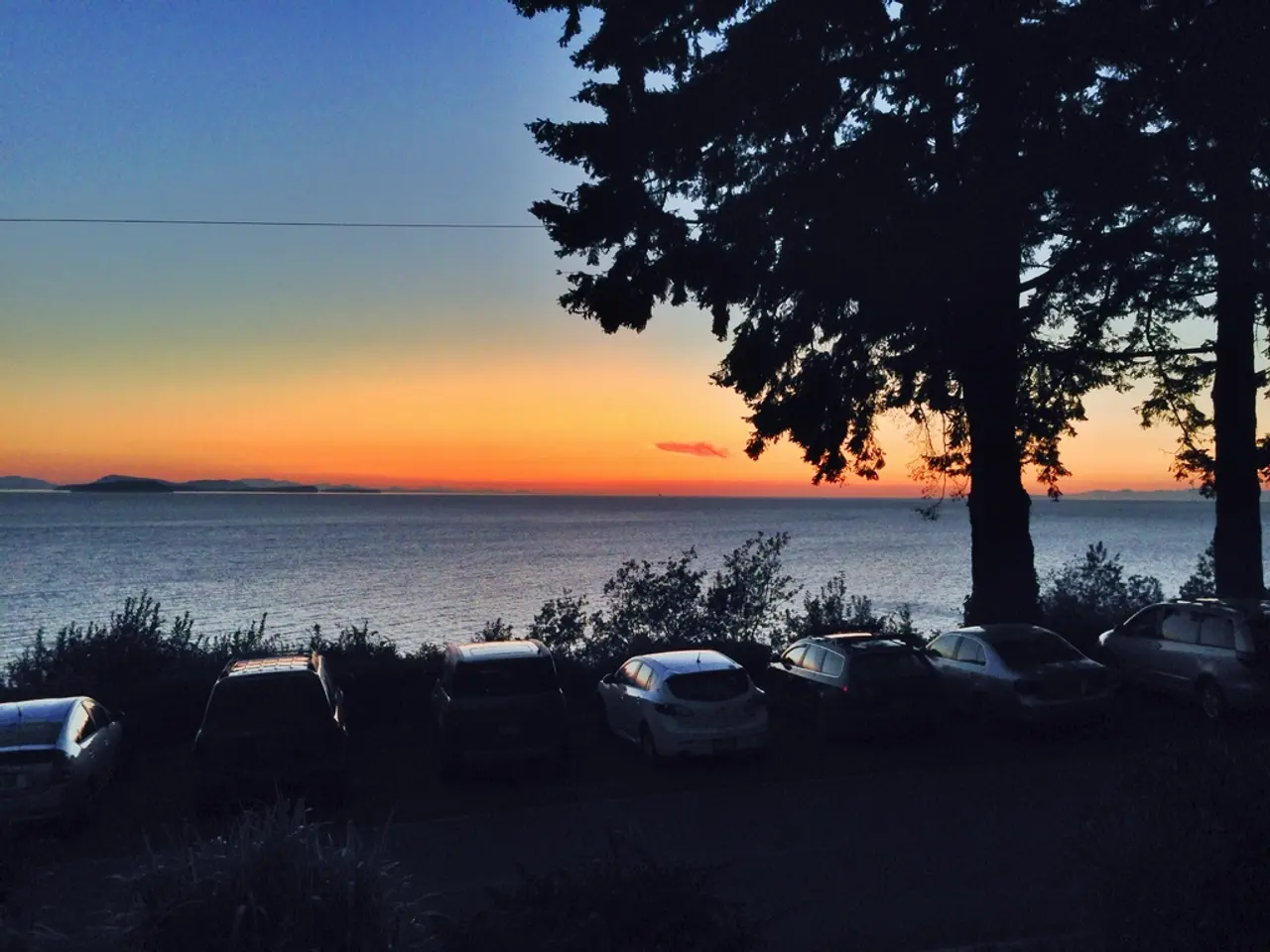Outdoor Bathing in North Rhine-Westphalia: Exposure to Heat, With Consequences Such as Dry Floors
Hot Weather Forecasted for North Rhine-Westphalia in August 2025
North Rhine-Westphalia (NRW) is set to experience several days of hot weather in the coming weeks, with temperatures reaching up to around 30-36°C in some areas like Cologne, followed by partly cloudy and milder days around 20-26°C[2].
The German Weather Service (DWD) predicts daytime highs of up to 31°C in Cologne Bay on Monday. The forecast indicates that these hot temperatures are not exceptionally rare, as a spokesperson from the DWD has stated[1]. However, the weather is still far from breaking heat records, such as the one held by Weilerswist-Lommersum near Euskirchen, with a high temperature of 40.1 degrees Celsius, reached on August 12, 2003[1].
Impact on Plants
Hot weather combined with intermittent rain can stress plants, especially if dry periods become prolonged. Higher temperatures increase evaporation rates, which may lead to soil moisture depletion, potentially causing drought stress for some crops and natural vegetation. However, occasional rain could temporarily alleviate water stress and help maintain plant health[1]. If heat intensity continues or increases, some sensitive plants might suffer reduced growth or early wilting. The Drought Monitor of the Helmholtz Centre for Environmental Research shows "drought stress" for plants in the top 25 centimeters in parts of Münsterland and the Ruhr region[1].
Impact on Water Levels
Periods of hot weather increase water evaporation from rivers, lakes, and reservoirs, which could lower water levels in NRW’s waterways. This is often exacerbated by lack of consistent rainfall. While some rain is forecasted, it may be insufficient to fully compensate for evaporation losses if hot days persist. Lower water levels can affect aquatic ecosystems and water supply availability for agriculture and households. The Ruhr Association's large reservoirs, such as the Bigge and Möhne reservoirs, are currently only about three-quarters full[1]. The Wupper reservoirs report lower levels at 59%, with a downward trend[1]. In some areas, private water withdrawal from rivers and streams is prohibited due to drought and low river levels.
Impact on the Tourism Industry
Warm and mostly dry weather tends to be favorable for tourism, encouraging outdoor activities, visits to parks, and cultural events. NRW, with cities like Cologne, may see increased tourism during hot sunny periods. However, extremely high temperatures (above 30°C) may reduce daytime outdoor activity, especially for vulnerable populations, and increase demand for indoor or water-related recreation. Rainy or cloudy days might deter tourists somewhat but are limited in number according to forecasts. The tourism industry in NRW is experiencing an increase in bookings and visits due to the good weather[1].
Ice Cream Sales on the Rise
According to the Italian Ice Cream Association Uniteis, ice cream sales increase when temperatures are between 24 to 27 degrees Celsius, and people tend to drink more when it's even hotter[1]. Ice cream parlors across the country are delighted about the sunshine.
Forest Fire Danger
The DWD index for forest fire danger is increasing, but remains at a moderate level (level 3 ("medium danger") in most of NRW from Monday)[1]. It's essential to remain vigilant and follow local safety guidelines during this period.
In summary, the hot weather in NRW in August 2025 is likely to stress plants through drying, slightly reduce water levels unless balanced by rainfall, and generally support tourism with some variations due to temperature extremes and occasional rain[1][2]. The DWD forecasts continued warm weather, with some areas experiencing highs of up to 34°C.
The hot weather in August 2025 forecasted for North Rhine-Westphalia is likely to affect plant health, potentially causing drought stress for some crops and natural vegetation due to increased evaporation rates and soil moisture depletion.
The hot temperatures predicted by the German Weather Service may also lead to increased sales of ice cream, especially if the temperatures range between 24 to 27 degrees Celsius.








